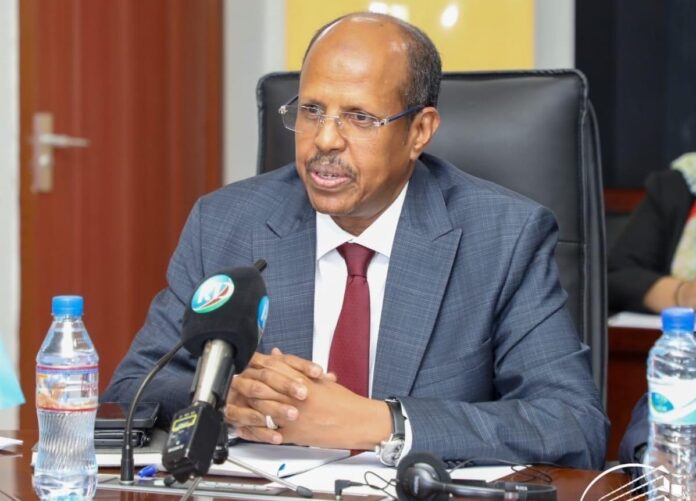Mahmoud Youssouf, chairperson of the African Union (AU) Commission, has dismissed recent claims of Christian genocide in northern Nigeria, stressing that the first victims of Boko Haram insurgents were Muslims. Speaking to reporters at the United Nations in New York, Youssouf said that the security situation in northern Nigeria is highly complex and cannot be simplified as targeted persecution against Christians.
“The first victims of Boko Haram are Muslims, not Christians. And I’m saying it with documented references,” he stated. Youssouf further highlighted that labeling the violence as Christian genocide oversimplifies the multi-layered security challenges in the region. “It is not that easy to describe these situations with such very easy words that can be used in not reasonable way,” he added.
The AU Chair’s remarks come amid heated discussions in international media and politics regarding alleged attacks on Christian communities in northern Nigeria. He highlighted that the AU Commission has repeatedly issued statements clarifying that there is no evidence of a systematic campaign aimed solely at Christians in the region.
In recent months, claims of Christian genocide in Nigeria have gained traction, especially on social media and in some international political circles. Several high-profile figures in the United States have portrayed the situation in northern Nigeria as a deliberate campaign against Christians.
Following these claims, a number of US lawmakers reportedly urged Secretary of State Marco Rubio to take decisive diplomatic action against the Nigerian government. They cited what they described as the “systematic persecution and slaughter of Christians” in the country, demanding immediate intervention.
The controversy escalated when former US President Donald Trump labeled Nigeria a “country of particular concern (CPC)” over alleged Christian persecution. In a series of public statements, he warned the Nigerian government to act swiftly or risk losing US aid and assistance. Trump also threatened military intervention, stating that the United States would take steps to confront “terrorists that attack our cherished Christians.”
These claims have sparked debates among international observers, religious organizations, and government officials about the accuracy of information being circulated abroad regarding Nigeria’s security situation.
The Nigerian government has consistently rejected allegations of Christian genocide. Officials insist that Boko Haram and other insurgent groups attack communities regardless of religion, often targeting civilians, schools, government institutions, and security forces.
However, the Christian Association of Nigeria (CAN) has maintained that Christian communities in northern Nigeria have repeatedly suffered brutal attacks, including church burnings, killings, and kidnappings. CAN leaders argue that while Muslims are indeed victims of insurgency, Christians are disproportionately affected in certain areas.
According to Mahmoud Youssouf, the AU Commission has consistently highlighted the importance of careful analysis before categorizing violence in northern Nigeria. He stressed that oversimplified labels like “Christian genocide” could mislead international responses and affect diplomatic relations.
“The complexity of northern part of Nigeria should not be taken that easily. The African continent is very complex,” Youssouf said. He urged the global community to consider the documented evidence and nuanced reports from credible sources before making sweeping claims about religious persecution.
He further explained that Boko Haram, the insurgent group that has terrorized parts of northeastern Nigeria since 2009, primarily targets anyone who resists its ideology, including both Muslims and Christians. Thousands of people, mainly Muslims, were killed in the group’s early attacks on villages and towns. Over time, Christians, government officials, and security forces also became victims of Boko Haram’s violence.
The debate over religious persecution in Nigeria has implications beyond national borders. International claims can influence foreign aid, diplomatic engagement, and security cooperation between Nigeria and other countries. Analysts warn that inaccurate narratives could lead to misguided policies that fail to address the root causes of insecurity in northern Nigeria.
“Security in Nigeria’s north is a mix of terrorism, poverty, weak governance, and local conflicts. Solutions must address all these aspects, not just focus on religion,” said Dr. Samuel Obinna, a policy analyst in Lagos. He emphasized that understanding the local context is key to preventing further destabilization.

